Kultur und Alltag

Arbeitsrat Für Kunst PDF
Meanwhile, some members of the Arbeitsrat für Kunst (Workers council for art) occupied important positions at the Bauhaus—above all, its founding director Walter Gropius. "The Art!—That's one Thing! When it's there" // On the History of the Arbeitsrat für Kunst in the Early Weimar Republic // Article // Jan. 21 2019 // Even though.
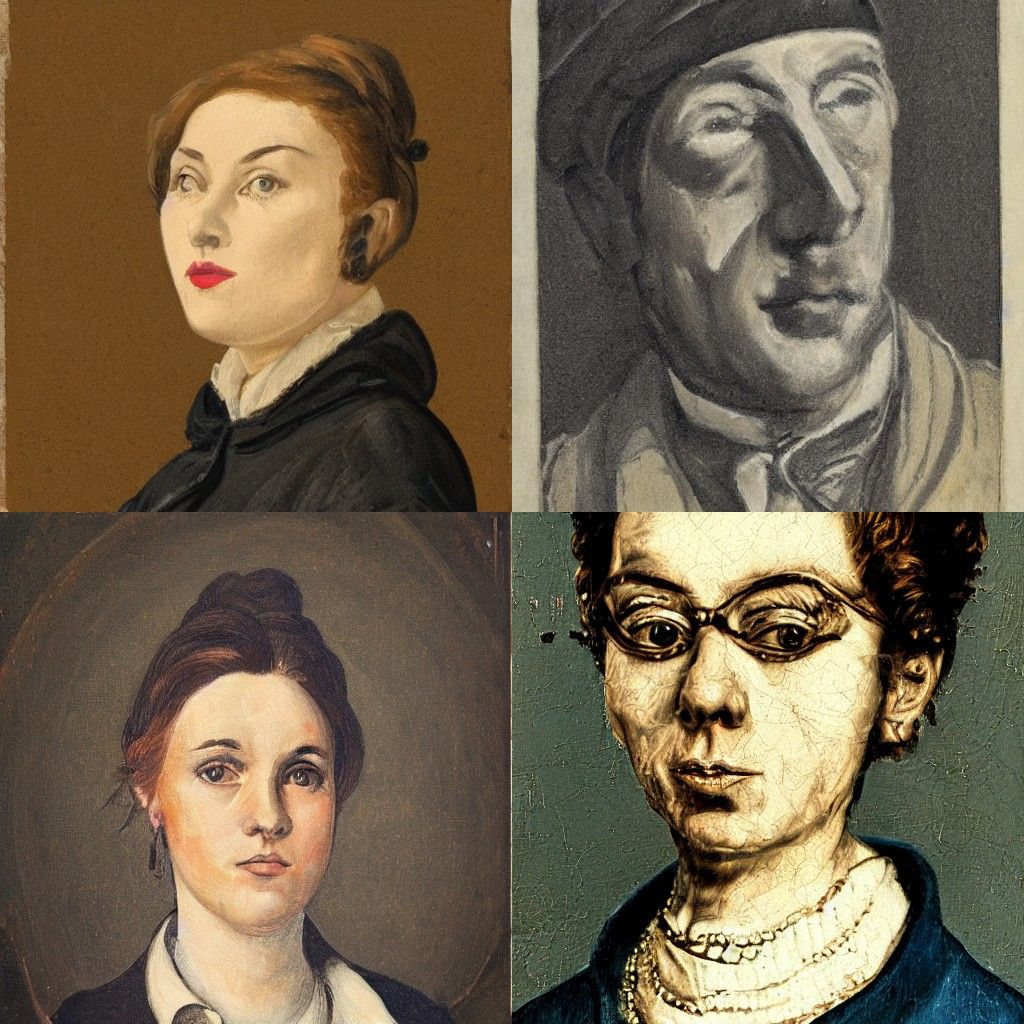
A portrait in the style of Arbeitsrat für Kunst AI Generated Artwork
The Arbeitsrat für Kunst (German: 'Workers council for art' or 'Art Soviet') was a union of architects, painters, sculptors and art writers, who were based in Berlin from 1918 to 1921.It developed as a response to the Workers and Soldiers councils and was dedicated to the goal of bringing the current developments and tendencies in architecture and art to a broader population.
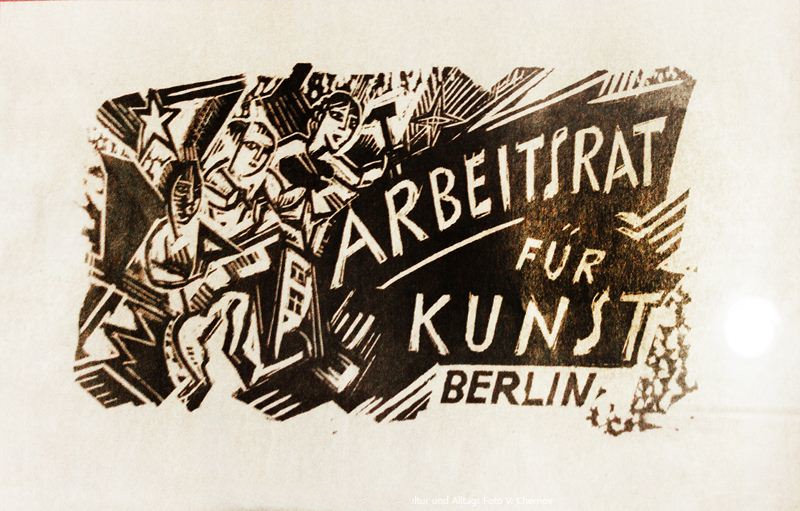
German Art Movements of the Early 20th Century The Art History Archive
The Arbeitsrat für Kunst (German: 'Workers council for art' or 'Art Soviet') was a union of architect, painters, sculptors and art writers, who were based in Berlin from 1918 to 1921.It developed as a response to the Workers and Soldiers councils and was dedicated to the goal of bringing the current developments and tendencies in architecture and art to a broader population.

Ruf Zum Bauen / A Call to Build with Der Bauhof / the Building Centre
Rudolf Stang," Zeitschrift fur bildende Kunst, 23, 1888, col. 525. 4 For a list of replicas and bibliography relating to them, see Ludwig H. Heydenreich, Leonardo.

dallemini/dallemini · Monsterpunk, Arbeitsrat für Kunst art in the
The Arbeitsrat für Kunst art movement (also sometimes mistakenly referred to as German 'Soviet Art') started with the union of architects, painters, sculptors and art writers based mostly in Berlin from 1918 to 1921. The movement developed as a response to the Workers and Soldiers councils from the same time period and was dedicated to.

Arbeitsrat für Kunst Billet n°169 Masmoulin, artiste passionné et
The "Arbeitsrat für Kunst," or the Work Council for Art, was a revolutionary art and architecture group that emerged in Germany during the early 20th century. Founded in 1918, in the midst of social and political upheaval, this avant-garde collective sought to redefine the relationship between art, society, and architecture..

dallemini/dallemini · Lunar eclipse, Arbeitsrat für Kunst art in the
The Arbeitsrat fur Kunst (working council for art) in Berlin, for example, promoted the idea of a democratic art under the aegis of architecture. Interestingly, former Die Brucke members Heckel, Schmidt-Rottluff and Pechstein were on its board. The architect Walter Gropius was on its executive committee, and, in 1919, he established the Bauhaus.

ver.di Arbeitsrat für Kunst Berlin
Der Arbeitsrat für Kunst war ein Zusammenschluss von Architekten, Malern, Bildhauern und Kunstschriftstellern, der sich 1918 in Berlin gründete und bis 1921 bestand. Er war als Reaktion auf die zu dieser Zeit gegründeten Arbeiter- und Soldatenräte entstanden und hatte sich zum Ziel gesetzt, die aktuellen Entwicklungen und Tendenzen in der Architektur und Kunst einer breiten Bevölkerung.

Eberhard Steneberg, Bauhaus aoARBEITSRAT FUR KUNST/ Berlin 19181921
Semantic Scholar extracted view of "Arbeitsrat für Kunst" by Eberhard Steneberg. Skip to search form Skip to main content Skip to account menu. Semantic Scholar's Logo. Search 215,905,756 papers from all fields of science. Search. Sign In Create Free Account. Corpus ID: 194013367;
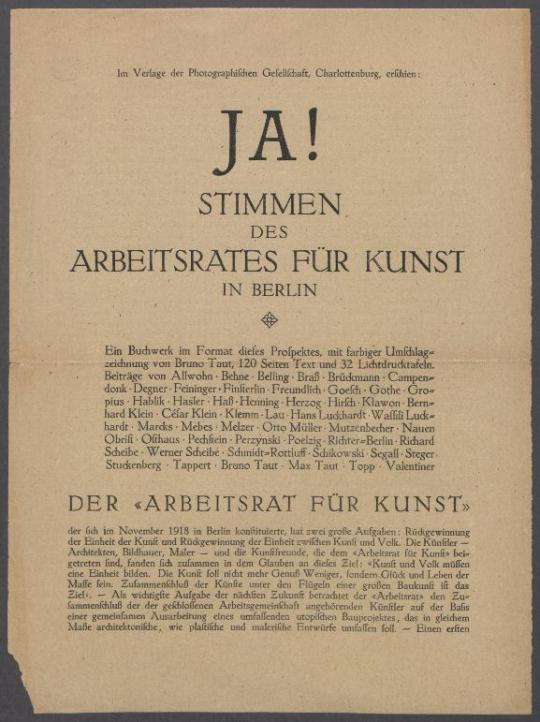
Buchankündigung [Arbeitsrat für Kunst, Berlin] GKM Online Sammlung
Schmidt-Rottluff took a very active part in the radical Arbeitsrat fur Kunst (Co-Operative Council for Art), a political artist grouping founded in 1919 - though his work did not reflect political concerns.. When the Nazis held their infamous Entartete Kunst exhibit, 25 of Schmidt-Rottluff's paintings were included. The artist died in Berlin.
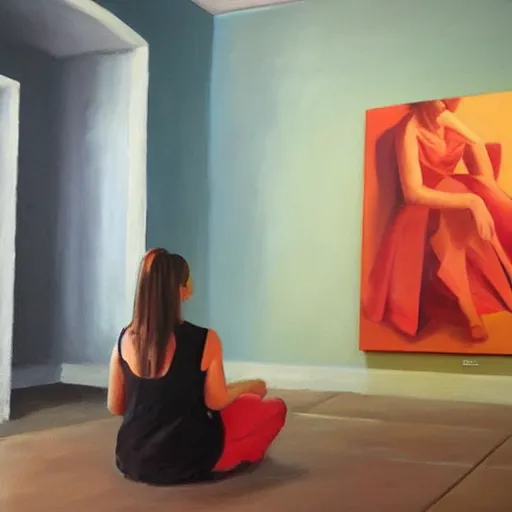
a woman sitting on the floor next to a painting, a Stable Diffusion
The Arbeitsrat für Kunst (German: 'Workers council for art' or 'Art Soviet') was a union of architects, painters, sculptors and art writers, who were based in Berlin from 1918 to 1921. It developed as a response to the Workers and Soldiers councils and was dedicated to bringing current developments and tendencies in architecture and art to a.

Arbeitsrat für Kunst Billet n°169 Masmoulin, artiste passionné et
Search for: 'Arbeitsrat für Kunst' in Oxford Reference ». Group of German architects founded (1918) by Bruno Taut, which included Otto Bartning, Walter Gropius, Erich Mendelsohn, and Max Taut, with several artists. Taut wanted the group to wield political influence similar to the Soldiers' and Workers' Councils, but this failed, and Gropius.

otto herbert fiedler ZVAB
The Arbeitsrat für Kunst was a union of architects, painters, sculptors and art writers, who were based in Berlin from 1918 to 1921. It developed as a response to the Workers and Soldiers councils and was dedicated to bringing current developments and tendencies in architecture and art to a broader population. The Arbeitsrat worked closely with the Novembergruppe and the Deutscher Werkbund.

dallemini/dallemini · Monsterpunk, Arbeitsrat für Kunst art in the
Expressionist architecture uses the form of a building as a means to evoke or express the inner sensitivities and feelings of the viewer or the architect. This tendency can be coupled with the notion that the form can represent the physical manifestation of a transpersonal or mystic spirit.. The term "Expressionist architecture" initially described the activities of the German, Dutch, Austrian.
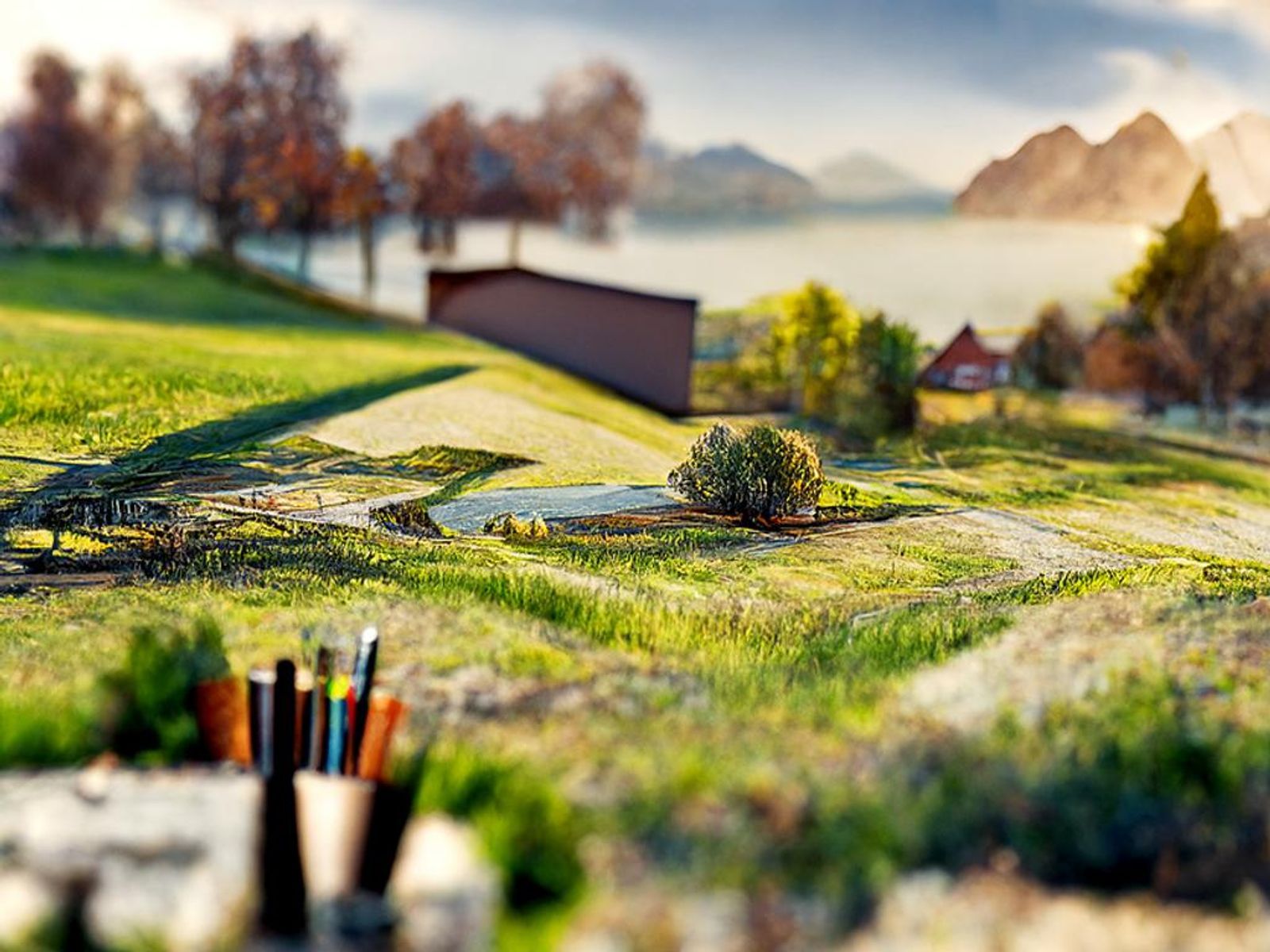
Arbeitsrat für Kunst style landscape vista, veduta photo, detailed
Arbeitsrat für Kunst Berlin, 1918-1921: Ausstellung mit Dokumentation : Ausstellung in der Akademie der Künste vom 29 Juni bis 3. August 1980 (German Edition) Perfect Paperback - January 1, 1980. German Edition. See all formats and editions.
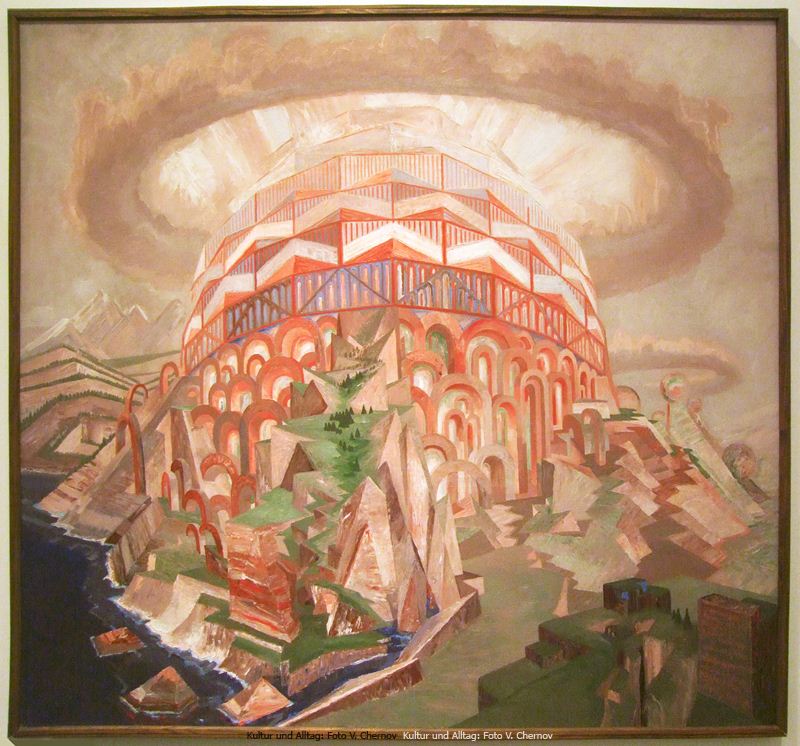
Kultur und Alltag
III Arbeitsrat fur Kunst Introduction 51. [Bruno Taut], Arbeitsrat fiir Kunst program, 1918 and Bruno Taut, from An Architecture Program, 1919 52. Walter Gropius, "Architecture in a Free Republic," 1919; letters, to Dr. Walter Rathenau, February 23, 1919, to Ludwig Meidner, February 26, 1919; speech to the